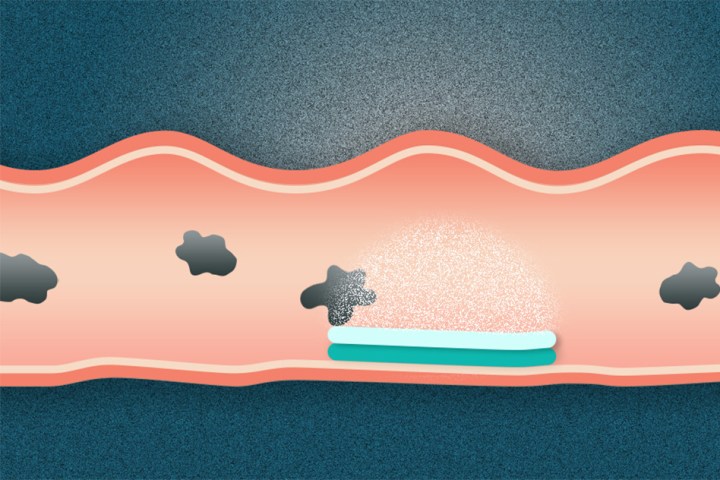
The MIT research team used a mucoadhesive polymer called Carbopol to design the pill, since the material naturally adheres to mucosal surfaces like the lining of the stomach and intestines. Once a patient takes the medication, one side of the pill sticks to the wall of the gastrointestinal tract to keep it in place. Meanwhile, the other side of the pill relies on a special omniphobic coating that repels all food and liquids so they can slide by without knocking the pill out of place. This protective coating is made of fluorinated and lubricated cellulose acetate, with a surface texture inspired by the lotus leaf to repel any particle that might pass.
The pill’s “janus” design, named after the two-faced mythical god, is what makes the pill so groundbreaking. Past trials of ingestible extended-release drugs resulted in blockages in the gastrointestinal tract or disappearing pills that were knocked away by passing food and liquids. In today’s medical technology landscape, extended-release drug solutions are increasingly common. But these long-term drugs are usually administered through implantable devices (which means minor surgery for the patient) or experimental patches that adhere to the skin.
So far, MIT’s janus pill is still in the testing phase to measure how long tablets can stay attached to the lining of organs along the GI tract, and to determine the rate of the extended drug release. Once it is ready for the general public, scientists believe that the pill could be used for everything from antibiotics to malaria and tuberculosis drugs.


